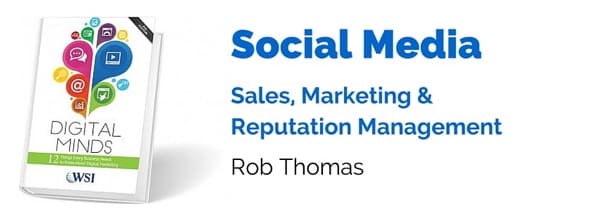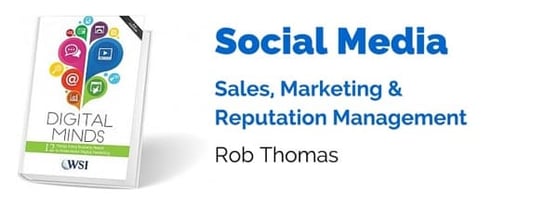Despite what some naysayers thought three or four years ago it's become clear that social media is now a core element of digital marketing. Whether it's simply maintaining a brand presence, creating brand awareness, using a social media platform for reputation management or simply to show off your product it's undeniable that social media provides a whole host of advantages.
 Simply doing social media isn't quite as simple as just setting up a Facebook Page or Twitter Profile for your business and posting about your products. There's so much more that can be done and there are a few things that you really should avoid.
Simply doing social media isn't quite as simple as just setting up a Facebook Page or Twitter Profile for your business and posting about your products. There's so much more that can be done and there are a few things that you really should avoid.
One of the first things to consider is fishing in the right pond. Depending on your buyer persona you should be targeting different social networks. Find out where your ideal customers are and focus on these social channels. It's easy to get drawn in by what someone else says is best practice for a certain kind of product or customer so remember to always come back to your personas.
'Advice might be to focus heavily on Pinterest if you are creating an 'arty' product. However, if your buyer persona is a 65-year-old woman who only really uses Facebook you might be wasting time and effort on Pinterest. But if another of your personas is a 25-year-old woman who has Pinterest then you might consider segmenting your channels to capture as much interest as possible. Post your knitting patterns of Yorkshire Terriers to Facebook and your Batman patterns to Pinterest!'
You can help inform your buyer personas and conduct general customer research by engaging in what we call 'social listening.' Twitter is an amazing tool for this. By using a third-party app such as HootSuite you can monitor certain words, phrases or hashtags. See what people are saying about your brand, your competitor or just a certain hobby. Use this information to inform your marketing or products, giving the people what they want is always better than giving them what you think they want!
Value Over Viral, Quality Over Quantity
When you think about social media it's easy to think of viral content. There are hundreds of compilations out there of the social media accounts of big companies getting a sarcastic comment or cute video just right and receiving millions of views for it. That's not a realistic goal. Even with a lot of research going into the subject lately, you still can't guarantee viral content and there are plenty of examples of failures that could hurt your brand.
Social media is for providing your fans and people who aren't yet your fans with quality content on a regular basis. If all you ever do is plug your product or share funny videos of animals you're not adding any value to your brand and you're not setting yourself up as a trusted source of information. 25,000 followers are meaningless if none of them engages with your content. Engagement is the key in modern social media marketing, every 'like' 'share' and 'retweet' expands your reach exponentially. The average Facebook user has over 200 friends who might now see your content if you can engage your fan enough to comment on or share your post.
Social media isn't just a B2C tool. LinkedIn is the biggest B2B network in the world and alongside it Twitter has a myriad of uses in the B2B context. Networking with the right professionals in your industry or target industries can be invaluable. From simply being a recognized name when you send your first email or make your first call to actually getting target leads to engage you first because you're already seen as a source of value in your area of expertise. It's key to remember that even in this day and age, even more so in the digital age, people still like to deal with people.
If you look in your inbox today and see 'Special Offer Today Only!' from 'NoReply@Company.com' is it likely you'll open it?
'I Saw Your Comment On My LinkedIn Post' from 'James.Davies@Company.com'
Whether you're a salesperson, a marketing manager, an MD or CEO there's a reason for you to be using social media. We all know that in the business world reputation is key. Social media allows a way for you to consistently prove social value, to provide a reference for your reputation and to become a name/face that people recognize, even if they don't know where from. Undertaking a few hours worth of social media work can give you a permanent business card at a 24/7 networking event.
This blog post has been adapted from the chapter 'Social Media: Sales, Marketing & Reputation Management' authored by Rob Thomas found in 'Digital Minds.'






